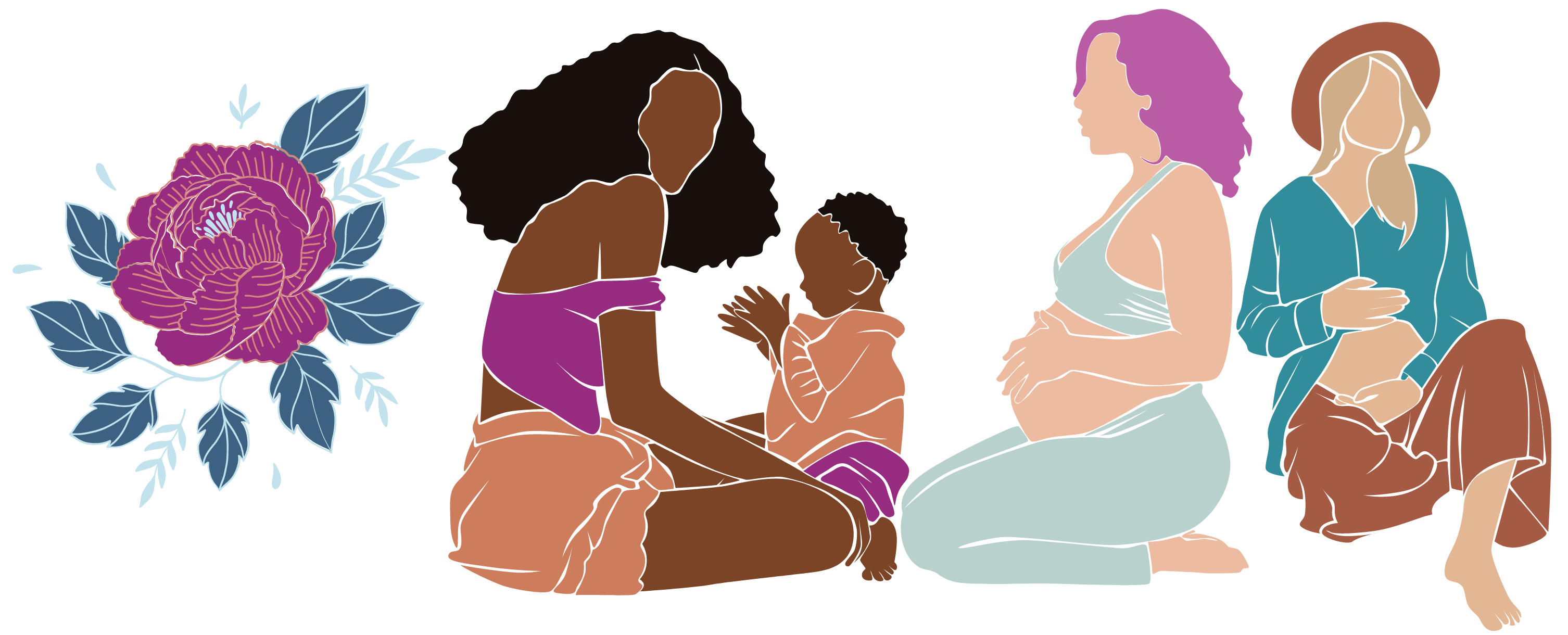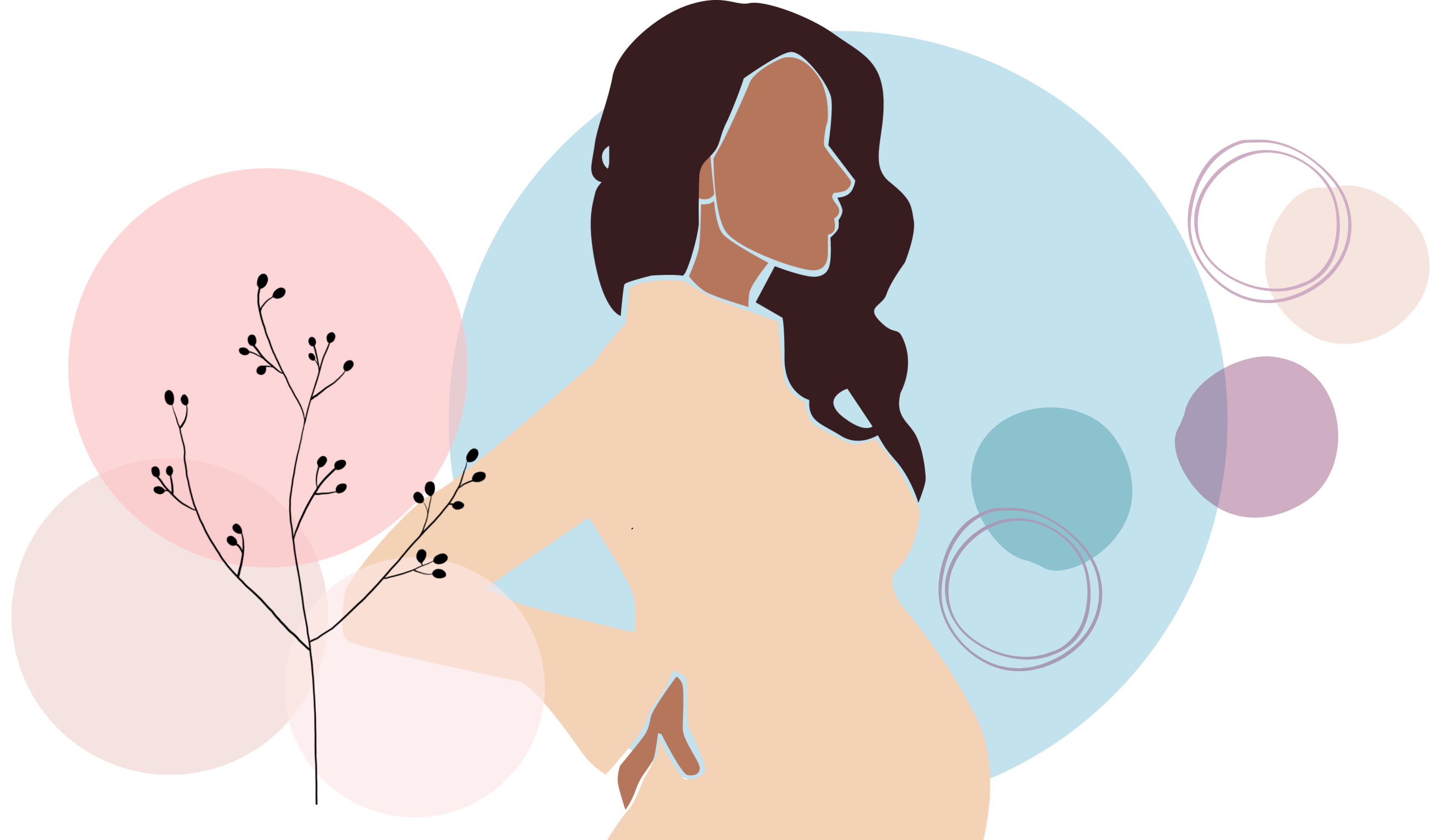Don't Panic: Pregnancy Fatigue is a Very Normal Thing
Feb 01, 2022
The shock of experiencing the most intense fatigue you’ve ever felt in your life can be scary. It may help to know that you’re not alone, and it’s a sign that your body is working.
Whether you are a first time mom or preparing for your third baby, that first trimester exhaustion is insane!
During the second trimester, we tend to get a bit more energy (especially if your nausea has finally subsided). And then third trimester comes, and here comes the exhaustion again! Click here for the course that dives more in depth with this topic.
Let’s look at a few reasons why you are so fatigued in the FIRST TRIMESTER:

#1: New Human and New Organ
This may seem pretty common sense. But even when you are the one who is pregnant, sometimes it can be easy to forget how much WORK the body requires to grow a baby, and your beautiful new organ: the placenta.
Your placenta is MAGICAL. This is the organ that transfers nutrients from you to your baby, and filters away waste from your baby (operating much like a two way filter).
After the birth of your baby, you will birth your placenta (which is painless, and feels more gooey coming out — nothing like the feeling of your baby coming through the birth canal).
And post birth, you will be able to look at this beautiful life source that is perfectly unique for your baby.
To grow this organ AND grow a human being inside of your body requires a lot of moving, adjusting, and expanding of your internal and external. Your hips aren't the only things expanding. Your ligaments are relaxing as well to make way for your expanding body; organs are literally shifting to make room for your growing baby; and your hormones are in flux.
So DO NOT EVER underestimate how much work goes into growing your beautiful baby. Your exhaustion is not only normal, but extremely warranted.
#2: Hormonal Changes
In pregnancy, we hear about hormones all the time. Oxytocin, progesterone, relaxin…these are a few of the hormones that your body is adjusting to, that is contributing to your exhaustion and fatigue.
In short, your increased levels of estrogen are unmatched to your non-pregnant friends (you have more estrogen in your pregnancy than any non-pregnant person will have in their lifetime).
Progesterone levels have increased sharply in the first trimester as well — as this hormone has prepared your uterus for pregnancy, allows the uterus to grow and expand, and also prevents the uterus from contracting too soon in pregnancy.
The hormone “relaxin” (which appropriately sounds like relaxing) has its highest levels during the first trimester, which helps prevent the uterus from contracting (helping to prevent premature birth).
Relaxin ALSO has a relaxing effect on your body’s ligaments, to aid in the stretching and expansion of your growing belly and body. This also tends to slow down blood flow and digestion — which can help explain early gastrointestinal complications (ie: indigestion, constipation, heartburn, gas, excess mucous, congestion).
With so much going on, it makes total sense that you feel fatigue. This also leads to the excess blood volume.

#3: Increase in blood volume
As your body is growing and developing your placenta, as well as growing a baby and maintaining fetal circulation, your body increases its blood supply (it doubles). With this increase in blood supply, the hormone relaxin aids your blood vessels in relaxing and expanding to allow for the extra blood flow and supply. This causes your heart to pump faster and stronger (and can also make you feel hotter than normal).
There are times when the fatigue is simply due to the extra work your body is putting in. Other times, it can be due to anemia (which is a reduction of “oxygen carrying capabilities” of your red blood cells). If iron levels are low, which is common for many women in pregnancy, this can also contribute to fatigue.
It’s important to note that many women are immediately put on iron pills to help with this. But research is showing that not only are these ineffective (test scores may be inaccurate since your body’s blood volume and blood flow is adjusting for your growing baby), but they also can lead to constipation issues (which can exacerbate an already slow digestive tract due to the hormone relaxin).
Sometimes a simple adjustment to your eating habits can help. Consulting with your midwife or doctor (and exploring options outside of “quick fix” medications that don’t fix anything at all, can be your best best).
#4: Morning Sickness
Studies show that about half of all pregnant women experience morning sickness, nausea, and vomiting. Though inappropriately named, morning sickness should really be called all day sickness.
But if you are someone who is only impacted in the morning, it could be a sign that your body needs more frequent snacks (even throughout the night). For example, a mom I was coaching had to keep a bowl of berries next to her bed all night — and whenever she woke up, she would take a few bites (just to help minimize the nausea).
For some women this is all that’s needed. For others, like myself, you may experience severe nausea and vomiting — known as HG (hyperemesis gravederum). This can lead to dehydration, which is exhausting.
 Hydration during pregnancy is extremely important — as dehydration can cause the muscles in your body to contract, including your uterus, which could lead to premature birth. In extreme cases, this can lead to hospitalization.
Hydration during pregnancy is extremely important — as dehydration can cause the muscles in your body to contract, including your uterus, which could lead to premature birth. In extreme cases, this can lead to hospitalization.
These are just some of the reasons you are experiencing first trimester pregnancy fatigue. When it happens:
- Don’t panic! Know that you are WORKING and this means all is going right!
- If you feel like you need to sleep, sleep when you can. Listen to your body, and don’t fight it. If you need to go to sleep early, do it!
- Eat more frequent healthy meals (yes fruit is your friend!).
- Get outside and get some sunlight. The sun is emitting energy vibrations at all times. Allow your body to bask in this power and fill your body with vitamin D.
- Remember to stay hydrated during the day and night!
- Hang in there and know that you are such a goddess for this work you are doing. It’ll pass soon!
What you should do next:
#1) Subscribe to my newsletter below for weekly tips, inspiration, tools, and truthful information to help you feel more confident and ready for your journey into and throughout motherhood.
#2) Click here to receive a FREE copy of my #1 most downloaded book: Birth Goddess. This book offers my top 10 tips to have an empowered and peaceful labor & childbirth.
#3) Start your course today! Join other birthing goddesses just like you who are stepping into their power and experiencing incredibly peaceful, trauma-free childbirth. After working with over 3,000 moms, I can honestly say there is something here for every one ;)
#4) Visit the Freakuency Fit Library. Want more information but not sure where to start? Browse the collection of books & audio books covering pregnancy, childbirth, and postpartum. Find what you need to have the experience you deserve.
#5) Click here to grab a copy of my latest book "Surviving Childbirth": 5 unconventional steps to trauma-free birth, & the top 13 myths about childbirth that must be busted". This book right here is a game changer for anyone looking to truly become the boss of your own birth.

With love & light xo
Written by Danielle Jai Watson @DanielleJaiWatson
Founder/ Cosmic Doula @FreakuencyFit

Stay connected.
Receive the latest Freakuency Fit news and updates!





